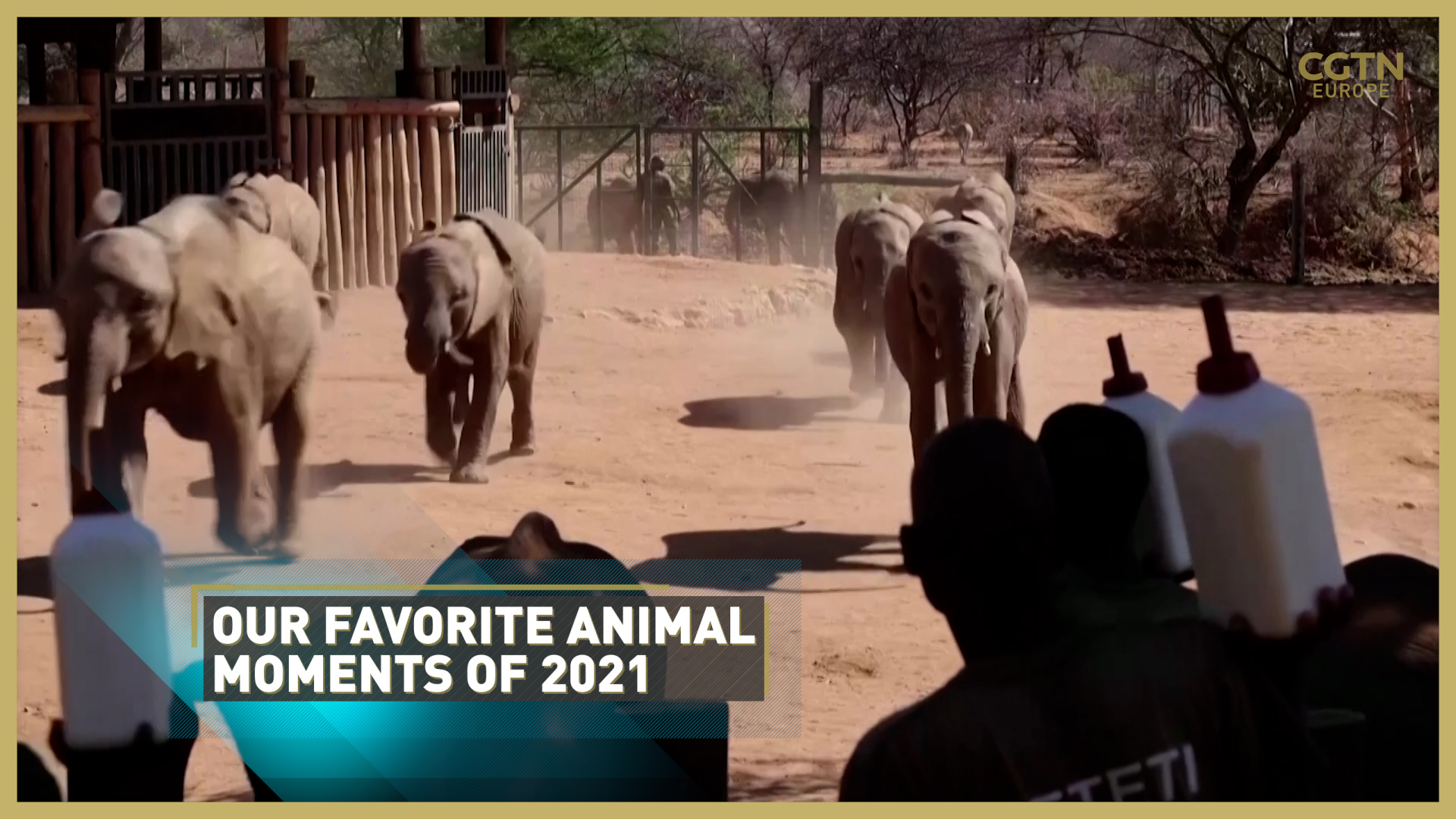00:59

A healthy alternative helping elephants... and locals
An elephant orphanage in Kenya tested goat's milk as a food for its small herd of elephant calves as a potentially healthier and cheaper form of nutrition than human baby formula. It's a solution that also puts money back into the pockets of the local community.
The Reteti Elephant Sanctuary in Samburu County in the semi-arid scrublands of northern Kenya, helps to rescue orphaned and abandoned calves. When the elephants are old enough to survive on their own, the sanctuary, founded in 2016, releases them back into the wild.

An elephant calf drinks goat's milk at the Reteti Elephant Sanctuary. /Reuters
An elephant calf drinks goat's milk at the Reteti Elephant Sanctuary. /Reuters
A turtle revival in Senegal
With people avoiding the beach during the COVID-19 pandemic, threatened Senegalese turtle hatchlings have appeared in greater numbers in Guereo. Increased fishing, tourism and construction have left fewer safe nesting grounds for the nation's turtles, which are listed as threatened by the International Union for Conservation of Nature. But as people have returned to the beaches the turtles have withdrawn again.

Hatchling turtles make their way to the sea in Senegal. /Reuters
Hatchling turtles make their way to the sea in Senegal. /Reuters
Crabs close roads in Australia
Roads were closed as they turned scarlet with thousands of red crabs emerging from the forest to begin their annual migration journey to the ocean.
According to Parks Australia, the annual migration on the island off the coast of Western Australia starts with the first rainfall of the wet season, usually in October or November.
Red crabs all over the island, up to millions in number, leave their homes at the same time and start marching towards the ocean to mate and spawn, creating a flame-red spectacle, the conservation agency said.

Crabs block roads as they make their way to the sea. /Reuters
Crabs block roads as they make their way to the sea. /Reuters
Turkey's commuting dog
One of Istanbul's most recognizable commuters is a street dog named Boji.
He has become a regular sight on ferries, buses and metro trains in the Turkish city. A devoted commuter, Boji enjoys long journeys on public transport, up to 30km on a regular week day.
Istanbul municipality officials who record the dog's trips with a microchip say he drops by at least 29 metro stations a day and was even tracked at sea, taking a weekend break to the Princes' Islands off the city's coast.

Boji takes, trains, boats and subways to get around Istanbul. /Reuters
Boji takes, trains, boats and subways to get around Istanbul. /Reuters
Sloth rescue in Venezuela
When Juan Carlos Rodriguez and his wife Haydee were taking one of their dogs to the vet in Venezuela last year, they found a sloth on the road that had fallen from a power line after apparently suffering an electric shock.
They called him Chuwie, after the furry Star Wars character Chewbacca, and decided to open a shelter for the vulnerable animals in their home in the lush suburbs of the Venezuelan capital, Caracas.
The Chuwie the Gentleman Rescue Center has so far rehabilitated more than 40 sloths and returned them to the wild. They hope to set aside 400 square metres of their 1,100-meter property by the middle of next year for the project, so they can treat up to 50 sloths at a time.

Sloths are cared for in the suburbs if Caracas. /Reuters
Sloths are cared for in the suburbs if Caracas. /Reuters
Doggie dancing in Russia
Dog lovers and their pawed friends in Russia's capital Moscow celebrated the first weekend of May showing off their dancing skills. The Russian competition of dancing with dogs was part of the Eurasia 2021 dog expo and attracted hundreds of spectators and participants. Dogs and their human partners performed in two disciplines – freestyle and synchronized dance to music.

Dog and owners compete with elaborate dance routines. Reuters.
Dog and owners compete with elaborate dance routines. Reuters.

